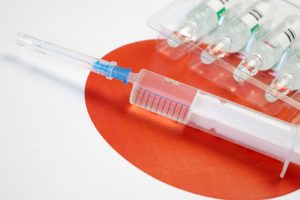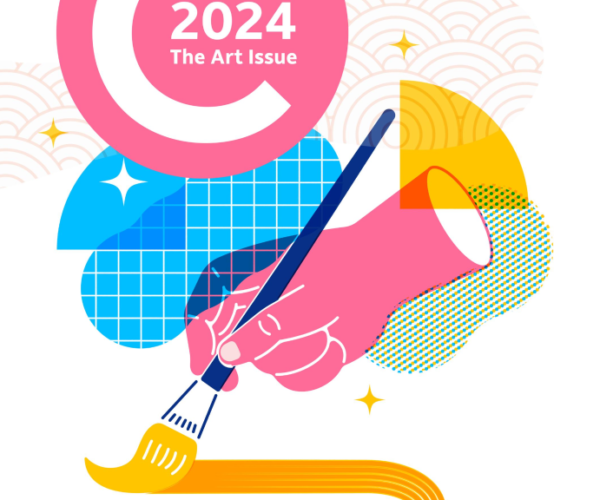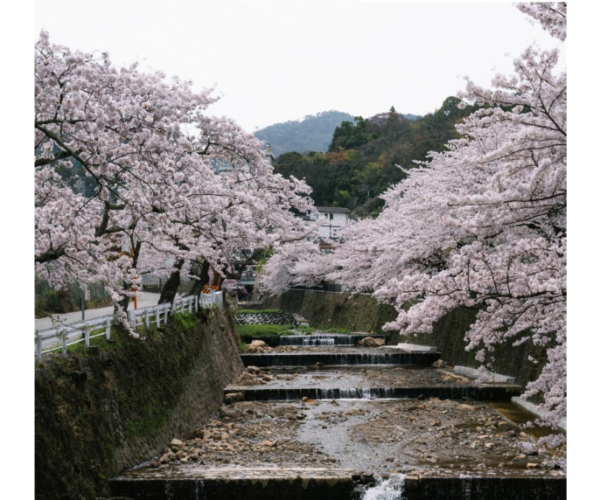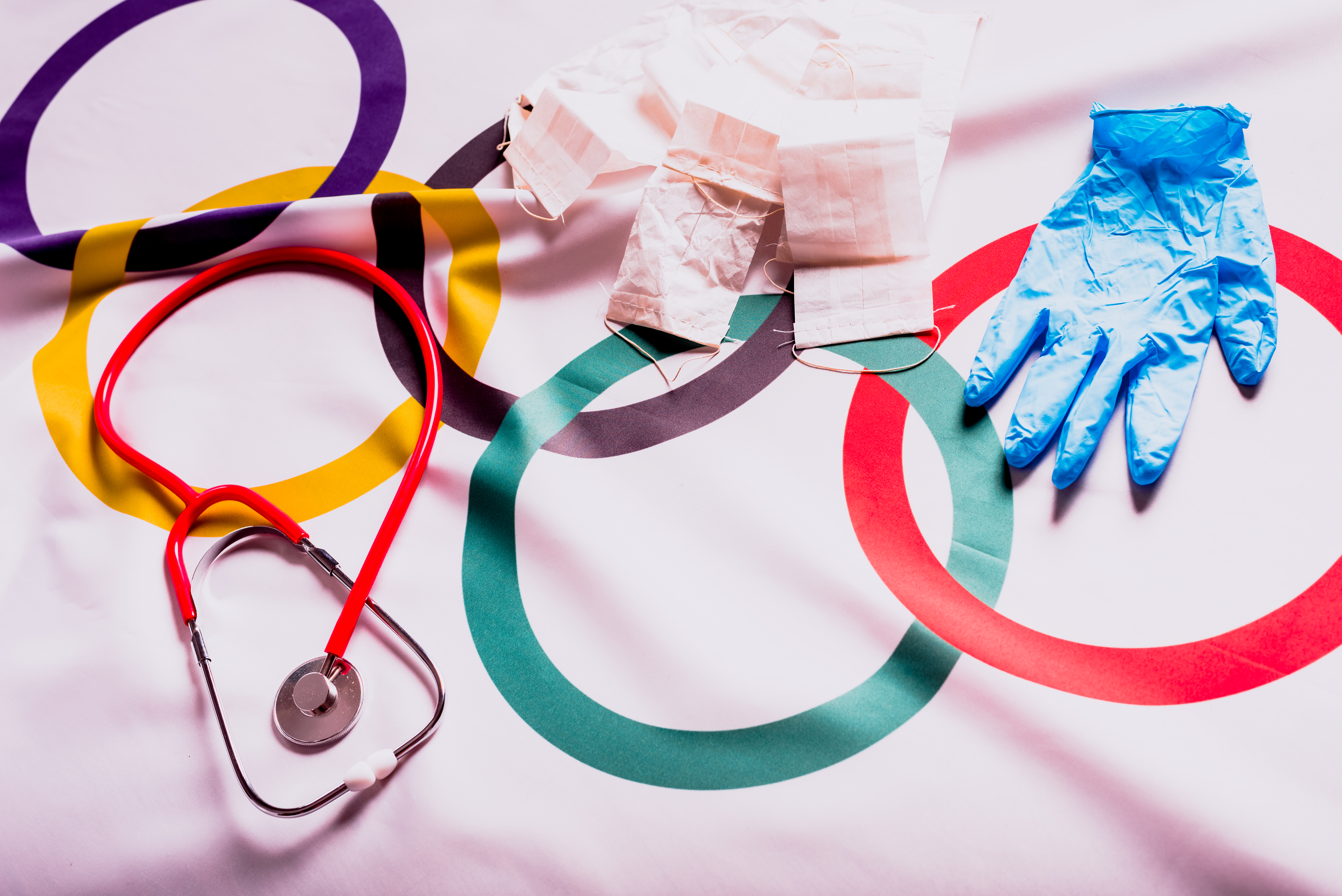This article originally featured in the March 2021 issue of Connect.
Joby Zhang (Tōkyō)
How much trust is there in the officials?
As the total number of COVID-19 cases surpasses 400,000 in Japan, Tōkyō accounting for about a quarter of that, and an extension of the second state of emergency to Mar. 7, the fate of the 2020 Summer Olympics and Paralympics, which was already pushed back to July and August 2021, is again under considerable spotlight. Prime Minister Yoshihide Suga and his cabinet are scrambling to make last-minute decisions and reassurances to combat the sharp downturn of public opinion.
According to a survey from Kyodo News, conducted over the weekend of Jan. 9–10, “around 80 percent of people in Japan believe the postponed Tokyo Olympics and Paralympics […] should be canceled or rescheduled.’’
The same survey also found that 68.3 percent were “dissatisfied” with the implemented COVID-19 measures, and 79.2 percent said that the second state of emergency was declared “too late.”
Only 14.1 percent support holding the Summer Games this year.
Despite having such detrimental numbers being reported, the International Olympic Committee (IOC), the Tōkyō Games organizing committee, and the Japanese government are adamant on the games happening this summer.
The previous Tōkyō Games organizing committee president, Yoshiro Mori, has been quoted saying that another postponement is “absolutely impossible,” in an event organized by Kyodo News on Jan. 12.
“Having the slightest sense of uncertainty impacts everything. All I can say is that we will go ahead with our preparations. There will be morning even after a long night. Let’s work together to overcome this major challenge,” Mori assured.
Following a resolute statement from Mori, the IOC President Thomas Bach also voiced certainty of the Games opening on July 23. But skepticism surrounds Bach’s own comment, where he said, “[. . .] there is no plan B and this is why we are fully committed to make these games safe and successful.”
In regards to the possibility of reducing the number of spectators, or outright having none, Bach then went on to mention, “You may not like it but sacrifices will be needed. This is why I’m saying, safety first, and no taboo in the discussion to ensure safety.”
“(We) encourage all the Olympic and Paralympic participants who are offered vaccination to accept it, also as an act of solidarity with the Japanese hosts and their fellow participants [. . .] [but] vaccination will not be obligatory,” Bach said.
In a meeting with the Japanese Olympic Committee (JOC) councilors on Feb. 3rd, Mori’s response to the question regarding the JOC’s policy to increase female board members by more than 40 percent made headlines worldwide.
The Asahi Shimbun reported on Mori’s demeaning comments stating that the increase of women will make “meetings drawn out” and how the current seven women board members “all know how to behave.”
The comments were met with public outcry, forcing Mori to announce his resignation a week later. Despite the scandal, he pointed to former president of the Japan Football Association, 84-year old Saburo Kawabuchi, as the replacement for the next head of the JOC.
This move proved to be terribly erroneous. Public backlash over “closed-door politics” promptly cleared the drawing board as the selection panel, headed by Canon Inc. Chairman Fujio Mitarai, worked to find the next president.
Despite the JOC’s and PM Suga’s guarantee of an open and transparent selection process, meetings of the selection panel were off-the-record. The committee also refused to confirm the members that make up the panel.
As the start of the domestic leg of the torch relay is soon to begin in Fukushima, the 56-year old House of Councilors member, Seiko Hashimoto, was chosen as the captain to weather this storm.
Hashimoto has a wealth of qualifications: from being the first female head of the ruling Liberal Democratic Party’s upper house member, to being minister in charge of the Olympics, women’s empowerment and gender equality, to a seven-time Olympian. However, there is still an air of uncertainty that surrounds her.
Although sponsors and a majority of the public support the appointment of Hashimoto, some of them, notably the president of Toyota Motor Corp., Akio Toyoda, have voiced concerns about the lack of communication between the athletes, the public, and the selection panel.
There are also questions about Hashimoto’s personal connections to Mori as she was a member of the intraparty faction that was headed by the former PM, as well as other scandals.
In 2014, Hashimoto was embroiled in a sexual harassment scandal where she forcefully kissed Vancouver Olympic figure skater bronze medalist Daisuke Takahashi. Takahashi later denied such harassment, but the public believes that he was pressured into making the statement.
Again, in September 2020, then Olympic minister, Hashimoto spoke to The Japan Times saying, “I think we have to hold the games at any cost. I want to concentrate all our efforts on measures against the coronavirus.”
Fast forward 3-months to December, Hashimoto admitted to having dined out with five other people in a high-end sushi restaurant. This was only 6 days after the Japanese government implemented new COVID-19 restrictions in an effort to curb the spread.
Hashimoto’s comments over holding the games were in response to remarks made a day prior by IOC Vice President John Coates, head of IOC’s coordination commission.
“It will take place with or without COVID. The Tōkyō Games will start on July 23 next year,” Coates told the French news agency Agence France-Presse.
From another survey conducted by Kyodo News in July 2020, about 23.9 percent responded in favor of holding the Summer Games as scheduled in 2021.
About 70 percent of respondents think that the Tōkyō Games should be postponed or canceled.
 Vaccination is the key, but is it too little, too late?
Vaccination is the key, but is it too little, too late?
Contrary to what the Japanese and IOC officials are trying to paint, experts are hesitant to agree with them.
The director of the Infectious Diseases Center at Rinku General Medical Center, Masaya Yamato, is unsure whether the games can continue, especially with the “Host Town Initiative” in place.
According to a statement from the Cabinet Public Relations Office, the initiative is to encourage “globalization, revitalization of local areas and promoting inbound tourism [. . .] [by] trying human, economic and cultural exchanges with the participating countries/regions.”
“I worry about the emergence of a new variant spreading rapidly through interactions between athletes and local communities of the team’s host towns,” Yamato said.
In regards to vaccination, Yasuhiro Kanatani, a professor of clinical pharmacology at Tokai University, warns that different vaccines will provide different outcomes so “it’s important to determine in advance which type of vaccine to use” and “stricter control measures will have to be taken” with international visitors.
Kanatani says, “Giving athletes access to vaccines, having them take multiple tests and restricting their movement upon arrival in Japan” are measures which can be taken to protect them and the Japanese public.
As much haste as the government is making, vaccination in Japan will be a monumental task due to the recent vaccine shortages and the deeply rooted skeptical outlook about vaccines in general.
So far, only the vaccine made by Pfizer and BioNTech has applied for emergency approval. If all goes well, the inoculation program can be started as early as late February, said Health Minister Norihisa Tamura.
The Japanese government also has contracts with the companies that produce the Moderna and AstraZeneca vaccines.
Clinical trials of the Moderna vaccine will begin in late January, with the second doses concluding in early March, and blood samples sent and analyzed in April.
But recent news of Pfizer halving vaccine deliveries until mid-February to upgrade its plant and AstraZeneca’s announcement of cutting deliveries in February and March by 60 percent has disrupted vaccination plans of governments around the world.
In a study published in the Lancet in September 2020, Japan is consistently ranked among countries with the lowest confidence in vaccines. With only 8.9 percent strongly agreeing that vaccines are safe and 14.7 percent strongly agreeing that vaccines are effective.
Japan’s distrust in vaccines can be found in the early 1990s inoculation of a combined shot of measles, mumps, and rubella (MMR), which some suspected led to higher rates of aseptic meningitis. Despite no related link between the two, lawsuits were filed against the Japanese government.The unease worsened with the mishandling of the human papillomavirus (HPV) vaccine in 2013 by government officials. The vaccination for HPV dropped from about 70.6 percent in the late 1990s birth cohort to 0.6 percent in the 2000 birth cohort.
“Japan has had a negative history with vaccines for the past 30 years, with the government lacking sufficient efforts to enlighten the public. Mass media is also to blame for overemphasizing the risks of vaccines and all but ignoring the benefits brought about by them,” Dr. Kentaro Iwata, professor and head of infectious diseases department at Kobe University Hospital, said.
“So it’s not easy to change people’s mindset all of a sudden, but if you look at the data, it’s clear as day that it’s better to have the shots,” he added.
According to a poll by the Yomiuri Shimbun in December of 2020, 84 percent said they would be vaccinated for COVID, but an overwhelming majority of 69 percent said they wanted to wait. Only 15 percent of the respondents said they would opt to receive it immediately.
If a special exception is made for the Summer Games and vaccinations are not a requirement for athletes as Bach has previously said, “all the economic and emotional pain caused by closing the borders and restricting domestic movement and activity could be wasted,” reports Joel Fitzpatrick of Kyodo News.
“Conquering the coronavirus comes before everything else. If you don’t like the lockdown or other measures that severely restrict our social lives, then the best thing would be to get a vaccine,” Iwata stresses.
Are the numbers in the right places?
The total cost of the Summer Olympic and Paralympic Games has been raised by 294 billion yen ($2.8 billion) to 1.64 trillion yen ($15.8 billion), announced the Tōkyō Games organizing committee on its fifth budget release.
The 294 billion yen increase is mostly for the setup of venues and maintenance of the athletes village, including the installation of countermeasures to prevent the Games from becoming a super-spreader event. Part of it is directed towards the opening and closing ceremonies, as labor costs and the added expense of storage for the completed structures increases.
As the numbers for the Summer Games rise, so does the number for everything else. The restaurants and bars that have been following municipal requests to cut business hours short will be able to tap in a 741.8 billion yen ($7.15 billion) reserve fund for subsidies of up to 60,000 yen per day.
On Jan. 28, the Japanese parliament authorized a third extra budget for fiscal 2020 totaling 19.18 trillion yen ($185 billion).
Among the third increase is a 1.03 trillion yen ($9.79 billion) for the extension of the controversial travel subsidy program, the “GoTo Campaign,” to late June.
But what’s missing from these budget hikes and talks are the support for people who now rely on the welfare system due to layoffs and severe income drops.
During the House of Councilors Budget Committee session on Jan. 27, Michihiro Ishibashi, of the Constitutional Democratic Party of Japan (CDP), asked PM Suga, “Are you telling people in dire economic straits (due to the pandemic) to just help themselves?”
“First of all, (people) should try whatever they can on their own. If that does not work at all, then the government will step in to help with the social safety net,” Suga replied. “There are various measures in place and, in the end, the government has the welfare system.”
Ayako Oguni, a writer for The Mainichi, reports that the welfare system should be the first step toward self-reliance, but only 20 percent of those who are eligible receive it. There are continuing efforts on the municipal and the prefectural level which aims to hinder the whole process.
What should be the “first step toward self-reliance” has become “the final safety net,” Oguni writes.
Tomoshi Okuda, president of the nonprofit organization Hoboku, emphasizes, “There should not be hierarchy or order among self-support, mutual support, or public support. Public support should not come in last.”
According to a study published in Nature, researchers at Hong Kong University and Tōkyō Metropolitan Institute of Gerontology reported that suicide rates rose 16 percent during the second wave of COVID-19.
Notably, among women and children, rates spiked 37 percent and 49 percent, respectively.
The prolonged pandemic increased the burden on working mothers, while domestic violence increased, the study found.
The study reports a correlation between the children suicide rate and the period after the nationwide school closure.
What’s the play?
Scandal after scandal are breaking out about senior bureaucrats dining out lavishly in Ginza with Suga’s eldest son or ruling lawmakers visiting hostess bars.
As the confidence in officials decreases, suicide rates surge, and the job market shrinks, the Japanese public is quickly growing weary and progressively questioning whether PM Suga and his cabinet have the best interest of the Japanese people in mind.
Perhaps Tōkyō doesn’t want the glory of declaring “victory over COVID-19” falling into the laps of Beijing as the 2022 Winter Olympic Games nears.
Perhaps the Japanese government simply doesn’t want to lose face.
Whatever the final dance that Suga and Bach have imagined it to be, one thing is certain. Borrowing from the article title in The Sydney Morning Herald, “Tōkyō Olympics plan is tempting disaster.”
Sources
https://bit.ly/2Zx9bgt
https://bit.ly/3ayo4FR
https://bit.ly/3dozk9y
https://bit.ly/3ubhr3W
https://bit.ly/3pxqdWr
https://bit.ly/3ub1lHF
https://n.pr/2ZrMkTC
https://bit.ly/3k2K7ra
https://bit.ly/3qDbzyf
https://bit.ly/3k0CWQr
https://bit.ly/2NJeC9m
https://bit.ly/3psryxO
https://bit.ly/2ND3Ql9
https://bit.ly/3uez5DS
https://bit.ly/2ZrMxWU
https://bit.ly/37sr58E
https://bit.ly/3qDbJpl
https://bit.ly/3azu550
https://go.nature.com/3pwRzw0
https://bit.ly/37qsX1u
Photos: Joaquin Corbalan, Freepik, Ianmil @ Freepik, slon.pics
Yuebo (Joby) Zhang is a second-year ALT from America living in Tōkyō. His favorite spots are the small shops found in the back alleys from the likes of Nakameguro, Omotesandō, and Ebisu. Since graduating from university and working at his parents’ restaurant for two years, he’s delighted to be living in such a foodie metropolis.



![CONNECT ART ISSUE 2024 SUBMISSIONS [CLOSED]](https://connect.ajet.net/wp-content/uploads/2024/04/ARTISSUE-INSTA-600x500.png)





